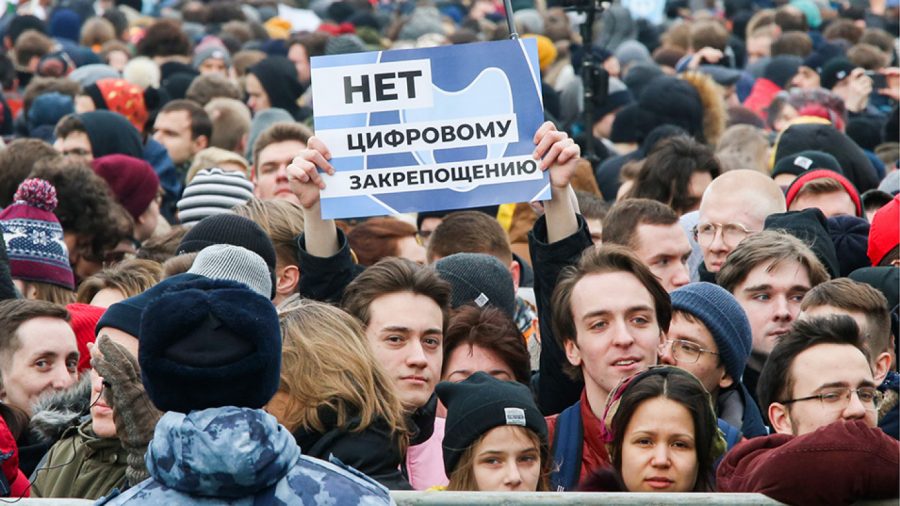The Battle for Internet Freedom
Russian Leaders Threaten to Limit Internet
Photo courtesy of Vladimir Gerdo / TASS
The streets of Moscow filled with protesters that fought for internet freedom.
March 26, 2019
In today’s society, the Internet may be one of the most potentially dangerous weapons. The instant transmission of thoughts, ideas, and facts can influence anyone and everyone in astonishing ways. Furthermore, such access to information is often what creates the perfect breeding ground for rebellions and uprisings- people grow restless if they realize that there is so much more out there.
Russia has recently responded to the threat of “fake news” by issuing a set of laws that allow the government to essentially control what the people of the country can see. The laws, which have already been signed by Vladimir Putin, were passed by the Russian State Duma; they “impose huge fines for publishing any ‘untrue’ report that creates a threat to life, health, public order, security, infrastructure, and almost any public institution” (The Christian Science Monitor).
Unfortunately, this is not the first time that Russia has tried to limit Internet access. In 2012, President Vladimir Putin already passed a law that blacklisted over 180 websites that were considered offensive. Furthermore, a similar legislation in 2014 required individual companies or websites to store the data of their users for up to six months for the Russian government to access.
In response to the recent bill, however, there were rallies organized in Moscow and two other cities protesting the limitations to internet freedom. Over 15,000 people joined the rally in Moscow, and reporters described scenes of a man being “dragged away from the rally by his arms and legs” (BBC). One of the attendees, named Sergei Boiko, reportedly told AFP that “the government is battling freedom” and that he could “tell you this as somebody who spent a month in jail for a tweet.”
Amelie Tran (11) says that the entire situation seems “frustrating for the people” and a clear “attempt to try to silence the Russian people.”
If the situation continues down the same road, however, it is likely that Russia will suffer from the restricted and isolated Internet. The government is already planning for an experiment that could cut off over 100 million Russians from using the Internet. Critics are comparing the experiment to the “technological dystopia” suffered from “the Great Firewall of China” (Science Alert).
Luckily, others are more optimistic about the situation and believe that it will be more difficult than it seems for the Russian government to isolate their country. In his book about the history of Russian Internet titled The Red Web: The Struggle Between Russia’s Digital Dictators and the New Online Revolutionaries, Andrei Soldatov points out that “the Internet is the everyman’s platform. To control it, Putin would have to control the mind of every single user, which simply isn’t possible. Information runs free like water or air on a network, not easily captured.”
Russia, as well as all other countries, deserves the internet freedom because such easy access to modern information is crucial in today’s world. One can only hope that the voices of the people will reach the government to secure internet freedom.





































